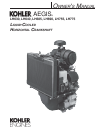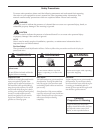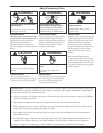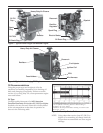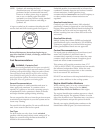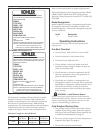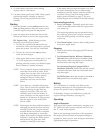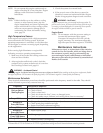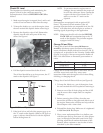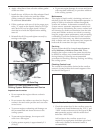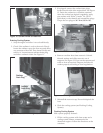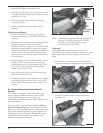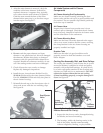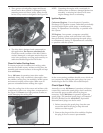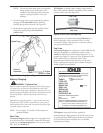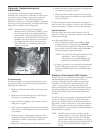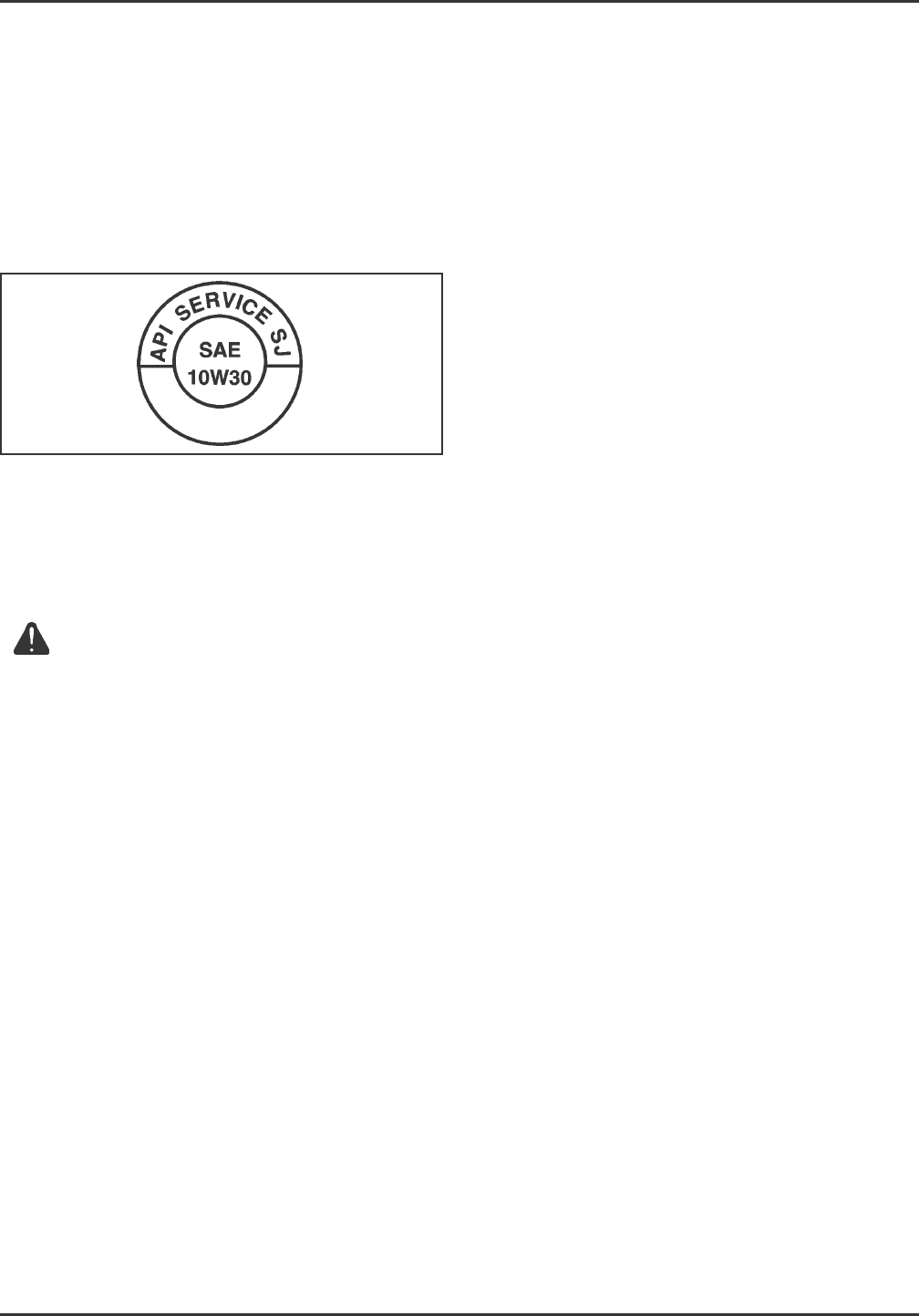
5
Figure 4. Oil Container Logo.
Refer to Maintenance Instructions beginning on
page 8 for detailed oil check, oil change, and oil filter
change procedures.
Fuel Recommendations
WARNING: Explosive Fuel!
Gasoline is extremely flammable and its vapors can explode if
ignited. Store gherasoline only in approved containers, in well
ventilated, unoccupied buildings, away from sparks or flames.
Do not fill the fuel tank while the engine is hot or running,
since spilled fuel could ignite if it comes in contact with hot
parts or sparks from ignition. Do not start the engine near
spilled fuel. Never use gasoline as a cleaning agent.
General Recommendations
Purchase gasoline in small quantities and store in
clean, approved containers. A container with a
capacity of 2 gallons or less with a pouring spout is
recommended. Such a container is easier to handle
and helps eliminate spillage during refueling.
Do not use gasoline left over from the previous season,
to minimize gum deposits in your fuel system and to
insure easy starting.
Do not add oil to the gasoline. Do not overfill the fuel
tank. Leave room for the fuel to expand.
Fuel Type
For best results use only clean, fresh, unleaded
gasoline with the pump sticker octane rating of 87 or
higher. In countries using the Research method, it
should be 90 octane minimum.
Unleaded gasoline is recommended as it leaves less
combustion chamber deposits and reduces harmful
exhaust emissions. Leaded gasoline is not
recommended and must not be used on EFI engines, or
on other models where exhaust emissions are
regulated.
Gasoline/Alcohol blends
Gasohol (up to 10% ethyl alcohol, 90% unleaded
gasoline by volume) is approved as a fuel for Kohler
engines. Other gasoline/alcohol blends including E20
and E85 are not to be used and not approved. Any
failures resulting from use of these fuels will not be
warranted.
Gasoline/Ether blends
Methyl Tertiary Butyl Ether (MTBE) and unleaded
gasoline blends (up to a maximum of 15% MTBE by
volume) are approved as a fuel for Kohler engines.
Other gasoline/ether blends are not approved.
Coolant Recommendations
Use equal parts of ethylene glycol (anti-freeze) and
water only. Distilled or deionized water is
recommended, especially in areas where the water
contains a high mineral content. Propylene glycol
based anti-freeze is not recommended.
This mixture will provide protection from -37°C
(-34°F) to 108°C (226°F). For protection and use outside
the indicated temperature limits, follow the anti-
freeze manufacturers instructions on the container,
but do not exceed 70% anti-freeze.
DO NOT use anti-freeze with stop-leak additive(s), or
put any other additives in the cooling system.
Engine Identification Numbers
When ordering parts, or in any communication
involving an engine, always give the Model,
Specification, and Serial Numbers of the engine.
The engine identification numbers appear on a decal,
affixed to the engine. The primary location is on the
side of the flywheel cover. Placement may vary due to
OEM requirements and specific options involved.
Record your engine identification numbers on the
identification label (Figure 5) for future reference.
NOTE: Synthetic oils meeting the listed
classifications may be used with oil changes
performed at the recommended intervals.
However to allow piston rings to properly
seat, a new or rebuilt engine should be
operated for at least 50 hours using standard
petroleum based oil before switching to
synthetic oil.
A logo or symbol on oil containers identifies the API
service class and SAE viscosity grade. See Figure 4.



